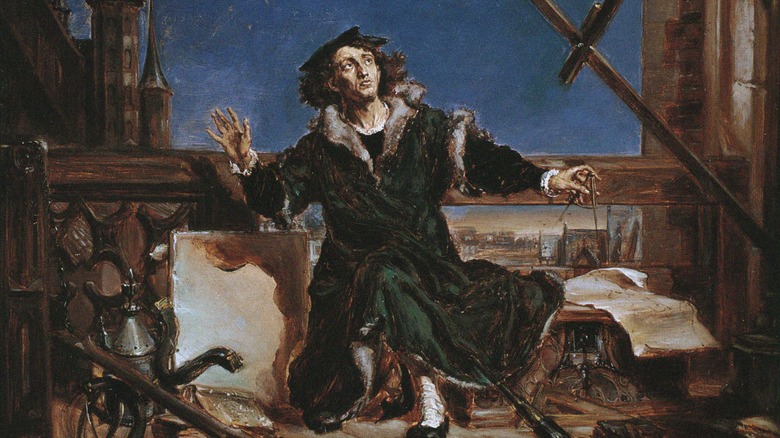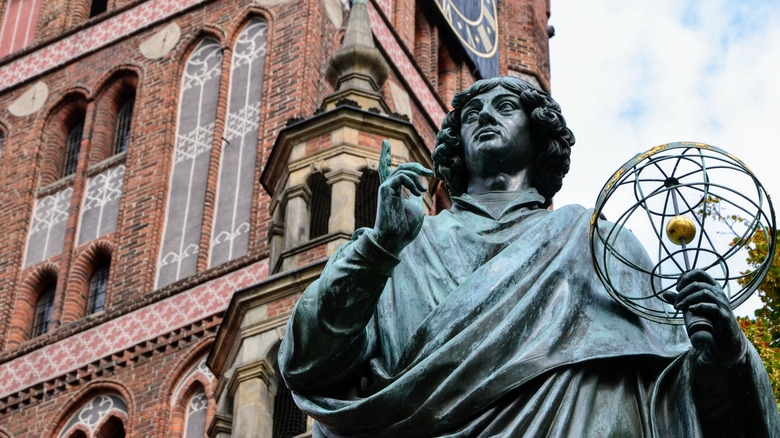How Nicolaus Copernicus Became A Doctor Without Getting A Degree
Polish scientist Nicolaus Copernicus is a titan of astronomy, largely thanks to his pioneering the theory that the Sun sits at the center of the solar system, not the Earth. Copernicus studied several subjects as a child, picking up five languages, along with math, philosophy, and, of course, astronomy before his 1543 manuscript changed our understanding of the cosmos (via Mental Floss). He also dabbled in other disciplines including law, economics, and medicine, and was a practicing physician for years — despite the lack of a medical degree.
Copernicus traveled to the University of Padua to study medicine after his uncle, Bishop Watzenrode, fell ill and was in need of a medical advisor. The astronomer spent two years trading astronomy for anatomy but left before he ever received a doctoral degree. Nevertheless, Copernicus did not let that deter him from traveling with his uncle and tending to his needs, along with those of other clergymen who needed medical attention.
Copernicus aided his town through epidemics
Copernicus was able to secure a bachelor's degree and therapeutic license from his time in Padua, but stopped short of receiving his doctoral degree (via PubMed). Despite this, he was always referred to as a doctor of medicine, perhaps out of respect for his achievements in astronomy. The good doctor traveled to Warmia, a region in Poland, and was the personal physician for his uncle the Bishop, and the next four Bishops to follow. Copernicus diagnosed and treated patients, along with providing prescriptions and consultations around Poland.
During the epidemic of 1519, Copernicus set about using his vast knowledge of math and engineering to develop an innovative water system for the towns in his area. This boost to the sanitation of Warmian towns meant the effects of disease were greatly lessened for himself and thousands of his neighbors. Copernicus has become a mainstay in science textbooks in the centuries since his groundbreaking manuscripts as one of the most influential astronomers of the Renaissance period, but his mind was also adept in the disciplines of math, law, and medicine — doctoral degree or not.

